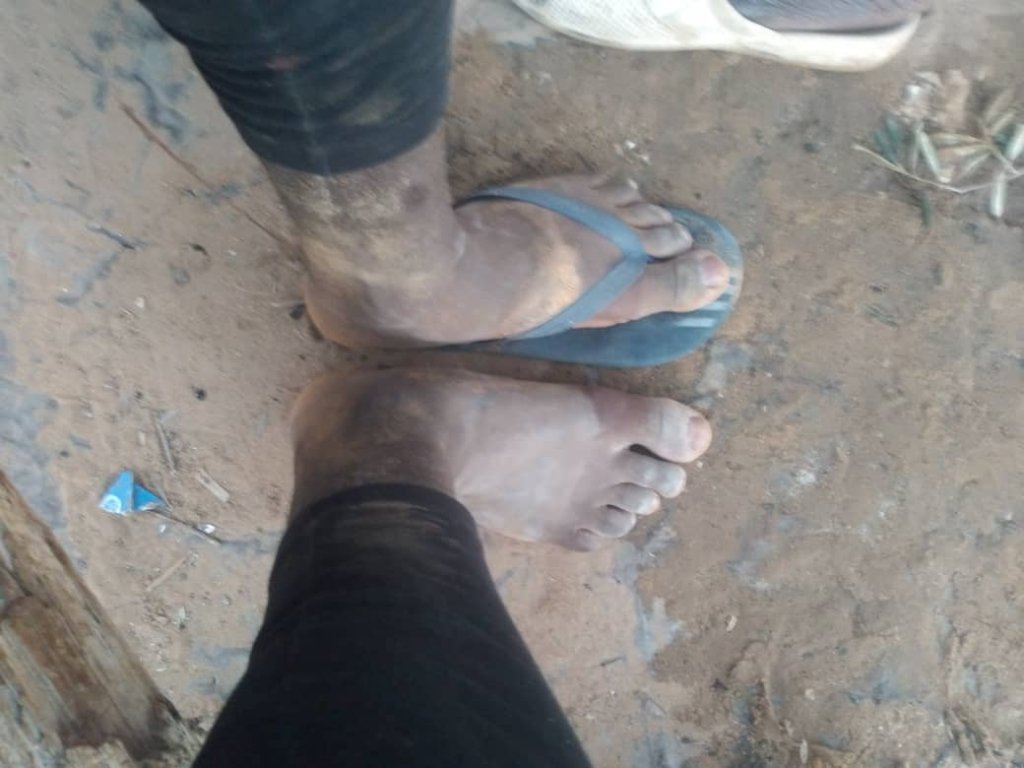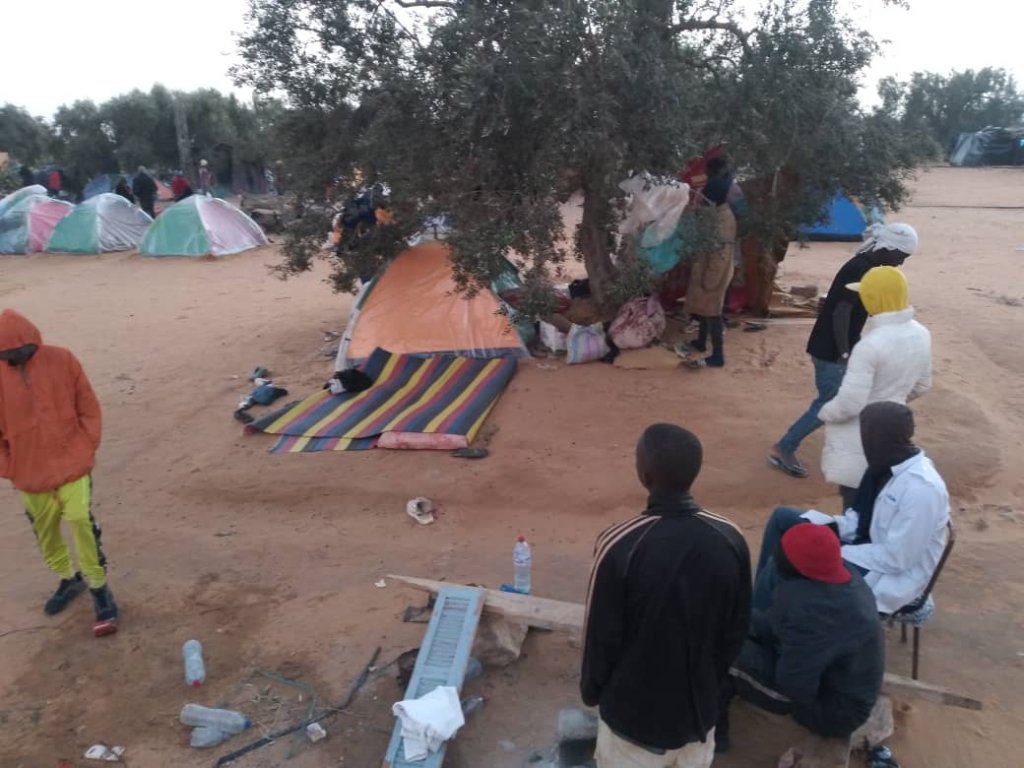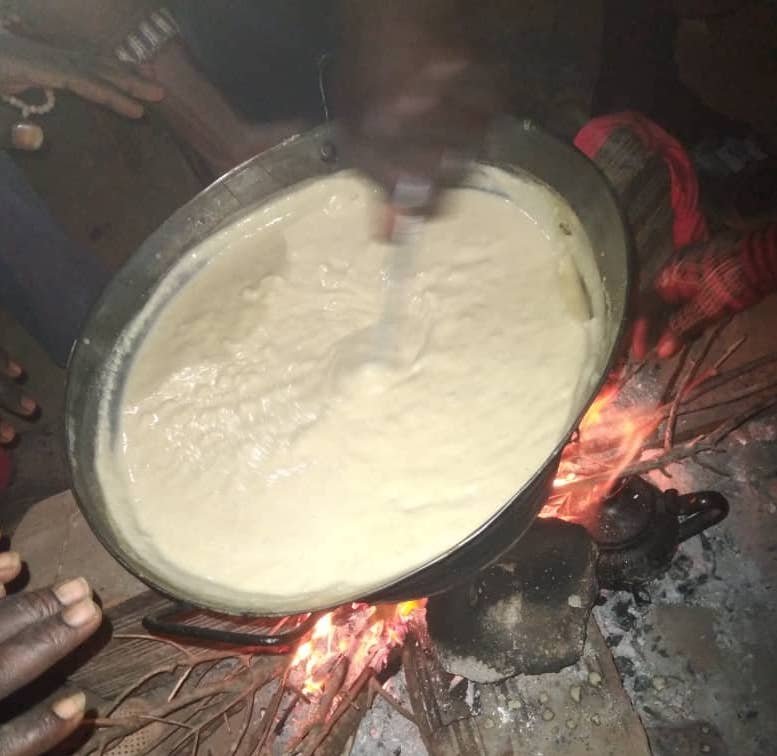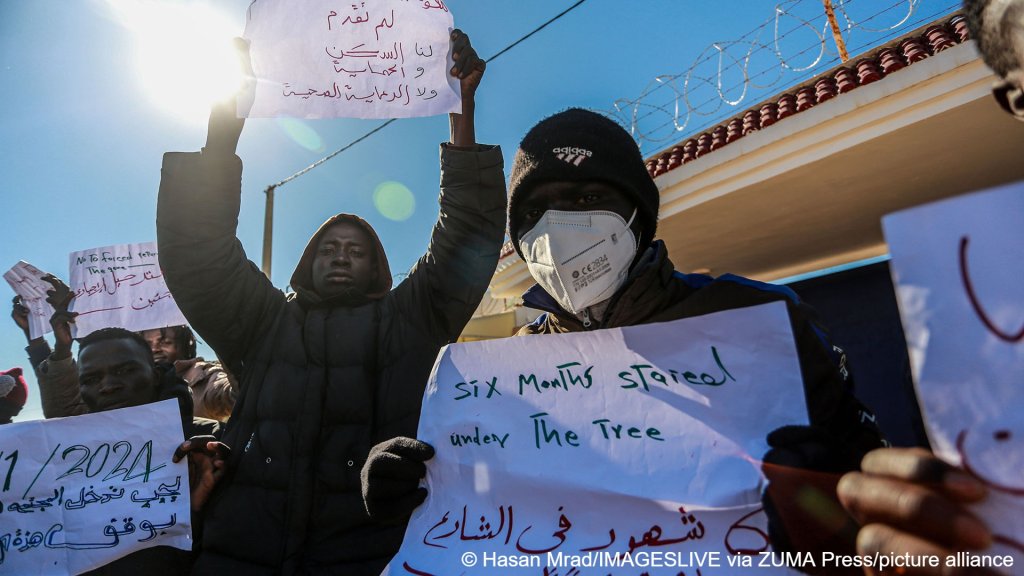A Gambian teenager tells InfoMigrants that police have carried out repeated raids on the camp where he lives after being driven out of Tunisia's second city, Sfax.
This is the story of Ousman, a 16-year-old Gambian who contacted InfoMigrants from a camp near the small village of Msetria, not far from Tunisia’s coast. He did not want to share his last name, in case it got him into further trouble.
About 500 people, including children and pregnant women, are living in tents and plastic sheeting at the camp. He says they are all African migrants who have been driven out of the coastal city of Sfax, about 36 kilometers away.
In the middle of last year, Tunisian authorities began removing sub-Saharan migrants from Sfax to remote areas and pushing them across the borders to Libya or Algeria.
The official harassment did not stop at these actions, which the United Nations called 'deeply concerning'. According to Ousman, migrants are still experiencing inhuman treatment. He first reached out to InfoMigrants after police had raided the bush camp.
"The day before yesterday there was a police raid. They attacked us, they arrested some of us, and they stole some of our belongings. Whether they stole them or not, we still don’t know where they are. They didn’t speak, they didn’t ask any questions, they just came and started catching people and if you didn’t escape, they took your belongings.
(The police) come almost every day. They came yesterday, they came the day before yesterday."

"I arrived in Tunisia with nine of my friends. We settled in a house in Sfax. I think we spent one to two weeks. I forget the actual dates but we didn’t spend long there. Later on, the police came and they arrested some people but luckily we were able to escape, and those they arrested are still … we don’t know their whereabouts.
So we had to run out. That’s how we ran out. We left our things. We came here with nothing. Everything, our belongings, we left them there and ran down to the bush here.
They just throw them away in the desert
We are in Msetria, but the closest well-known town is Jebiniana.
It’s been five months here, we are just staying here. Because we cannot go to the town, they will (catch) you. And once you are arrested, no one will know your destination. They will just take you.
Either they will take them to the Libyan border and hand them over to the Libyans or they just throw them away in the desert. So it’s stressful. That’s how we live here.
One of my friends was arrested this past Friday. He is also from Gambia. He said he was going around to see if he can gather something for us to eat. We said, okay. So he left and we called and he never picked up. So the following day we called again and the phone was off. Now we don’t know his whereabouts.
Before this, two people I also know from Gambia (were taken away). I later heard from them because they contacted me by Facebook. They said they are in Algeria, the police took them to Algeria.

We eat just once a day
"Sometimes we struggle to get water to drink here. To be frank, we eat just once a day. When things get stressful we go inside town we walk, like, a few kilometers away from the main road town.
So we walk down there, we stand at the roadside, and beg.
Sometimes they give us food, sometimes they give us bread, sometimes we get money. So we buy stuff there and we come back to have something to eat. That’s how we are living. The conditions here are very bad. Just by seeing people you can tell that they are not eating good food.
Today [January 25, when InfoMigrants first spoke to Ousman] the temperature is around 19 degrees, but yesterday and the day before yesterday we experienced a temperature around 13 degrees. We are living in tents. It’s very cold."

"There are kids here, like small children, from six months, one year, two years old, with their mothers. Their fathers have been arrested and thrown away.
We arranged a protest of migrants on Saturday. It was in a city far from here. There were many refugees. They gathered outside the UN office located in Zarzis.
[Eds note: A protest was held in Zarzis on Thursday, January 25. This is likely to be the protest that Ousman spoke of.]
One banner read ‘No handing the refugees to Libyan military’. Because now that’s what they do. When the police attack and arrest you they will hand you over to the Libyans, and those ones, they are very brutal."

"In Tunisia, I don’t know what the problem is here. Even to talk to Tunisians is a problem. They tell you that the police do not allow them to talk to migrants.
To me, it’s racism, yeah. Because even in the town I was living in first, there were certain shops when you go, if you are black they won’t serve you.
I wasn’t expecting this. When I was in Gambia, some of my friends influence me to come here. They were working here, they came for job opportunities. So I was convinced, and I came.
I don’t know about others, but for myself, I came here in sight of opportunity with my skills as an electrician.
I am just calling for justice, because what they are doing to us is inhuman."
